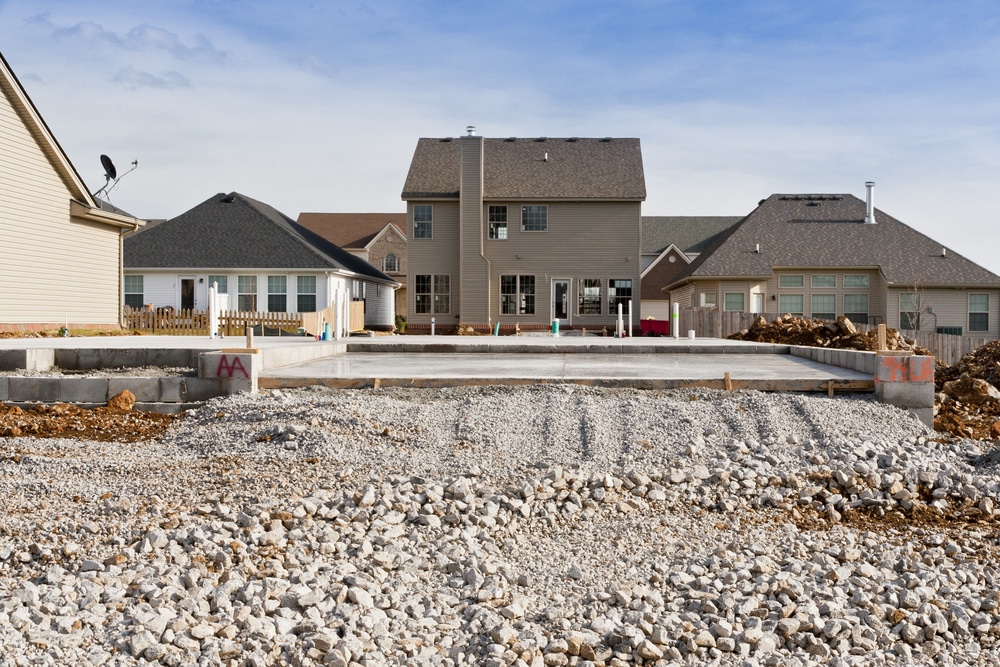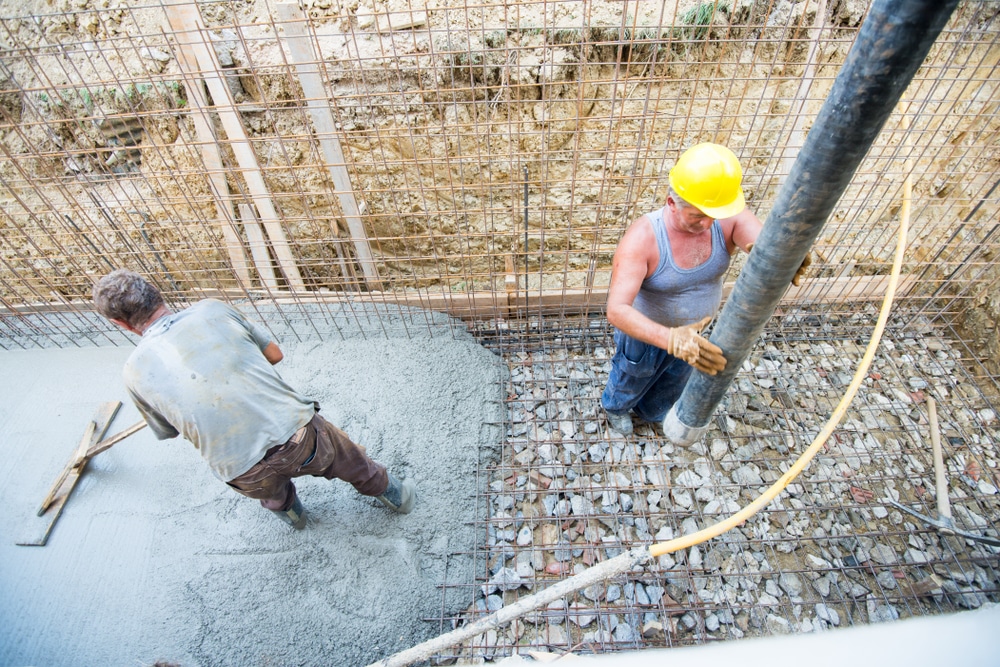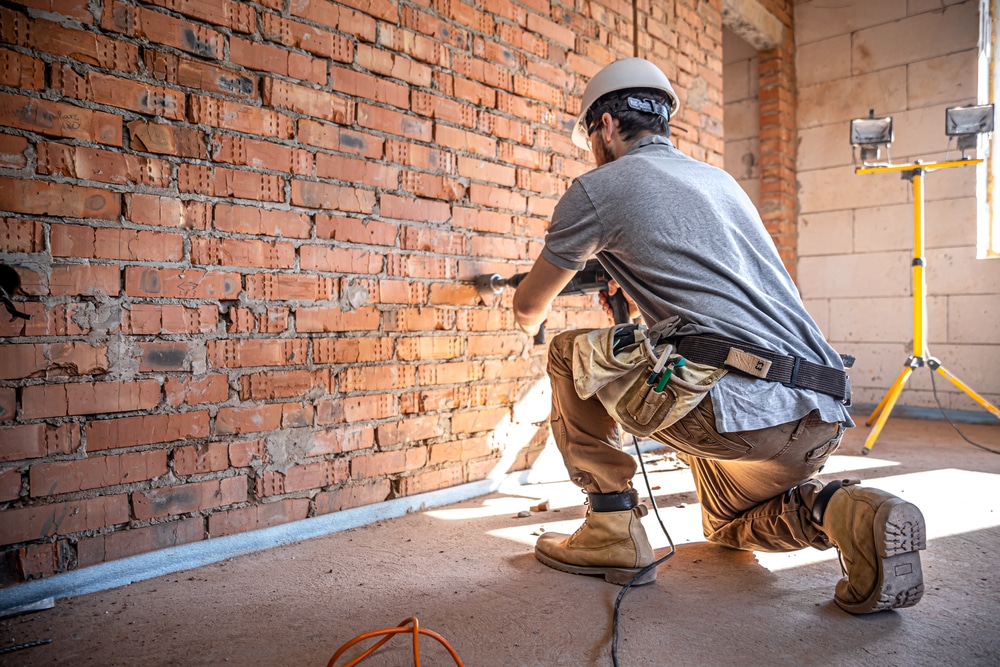October 17, 2024
Can You Buy a House with Foundation Problems in Louisiana?
- Residential Services
Buying a home in Louisiana lets you live in a place full of culture, history, and Southern charm. However, the home-buying process in this region comes with its own set of challenges.
Buying a house is a big financial investment. It is important to have a clear title and arrange for thorough home inspections. You should address any potential issues found during the inspection, especially foundation problems.
Louisiana’s climate and soil conditions make it especially prone to foundation issues. The state has clay soil that expands and shrinks with moisture changes. This can damage a home’s foundation over time.
Louisiana’s heavy rains and frequent flooding can exacerbate these problems, leading to shifting, cracking, or sinking foundations. Given these environmental factors, inspecting the foundation should be a top priority for any prospective homebuyer.
But what happens if a home you’re interested in has foundation problems? Is it safe to move forward with the purchase and bank on foundation repair, or should you walk away? This is a common question faced by many homebuyers in Louisiana. In this guide, we’ll explore the risks and benefits of buying a house with foundation issues and provide key insights into how you can make an informed decision.
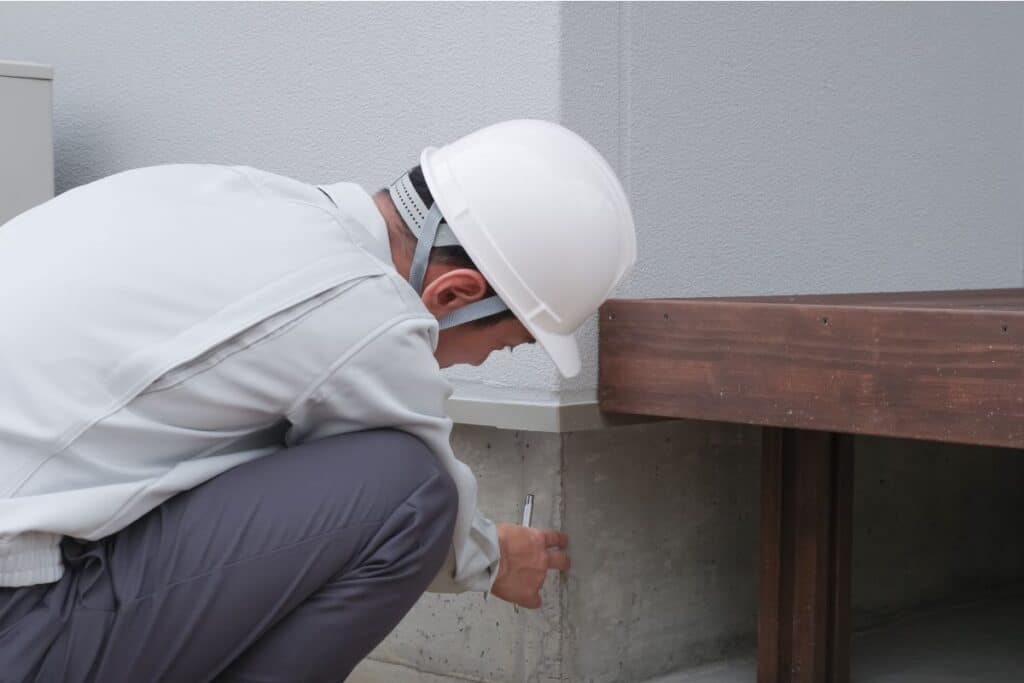
How to Identify Foundation Problems
Spotting foundation problems early on is crucial when considering the purchase of a home in Louisiana. Due to the area’s special environmental factors, homes are more likely to have foundation problems.
Recognizing warning signs can help you make better decisions. Here are some common signs of foundation problems. We will also look at how Louisiana’s soil and climate affect these issues.
Visible Red Flags
Certain signs inside and outside a home can indicate foundation problems. While some may seem like minor cosmetic issues, they often point to underlying structural damage:
- Cracks in Walls, Ceilings, and Floors: These are one of the most obvious signs of foundation movement. Horizontal cracks, in particular, can signal serious foundation shifting, while vertical cracks may suggest settling.
- Sloping or Uneven Floors: If you see that the floors are uneven or sloped, it may be due to the foundation sinking or settling unevenly.
- Windows and Doors that Stick: When doors and windows do not open or close well, it is often because the foundation has shifted. This movement can cause them to become misaligned.
- Gaps Around Window Frames and Doors: Shifts in the foundation can cause gaps between walls and window or door frames, another red flag indicating instability.
These issues may seem easy to handle at first. However, they can indicate bigger problems that need careful inspection.
Foundation Movement in Louisiana
Louisiana’s environmental conditions play a significant role in foundation issues. The state’s expansive clay soil is a primary contributor to foundation movement. Clay soil swells when wet and contracts when dry, creating a continuous cycle of pressure on the home’s foundation. Over time, this movement can cause the foundation to shift, crack, or sink.
- Clay Soil Expansion and Contraction: The clay soil in Louisiana is known for absorbing water during heavy rain, causing it to expand. During dry periods, the soil contracts, which puts stress on the foundation and can lead to cracks or settlement issues.
- Frequent Flooding: Areas prone to flooding or near bodies of water are particularly vulnerable to foundation problems. Louisiana’s low-lying land often puts homes at risk of too much water. This can erode the soil and shift foundations.
These natural factors make it important for homebuyers to prioritize foundation inspections when buying a property in the state.
Signs of Water Damage
Louisiana’s climate, marked by high humidity and frequent heavy rainfall, can lead to water-related foundation problems. Moisture accumulation around the foundation is a serious issue that can weaken its structural integrity. Here are some signs that water damage may be affecting a home’s foundation:
- Water Pooling Around the Home’s Perimeter: Poor drainage or heavy rains can cause water to collect near the foundation. This can lead to soil erosion or soften the ground. As a result, the foundation may sink.
- Mold and Mildew: Inside the home, the presence of mold or mildew in the basement or crawl spaces may suggest that moisture is seeping into the foundation.
By knowing these warning signs and environmental factors, you can better assess a home’s foundation. This will help you decide if it is worth pursuing. In the next section, we will talk about how to find out if a home has had foundation repairs. We will also cover what to watch for before you make a decision.
How to Tell if a House Has Had Previous Foundation Repairs
When considering purchasing a home in Louisiana, it’s essential to understand whether the property has had foundation repairs in the past. A home with past foundation work can still be a good investment.
However, you must check that the repairs were done well and by a trusted company. Here are some ways to check if a house has had foundation repair. You can also verify the quality of those repairs.
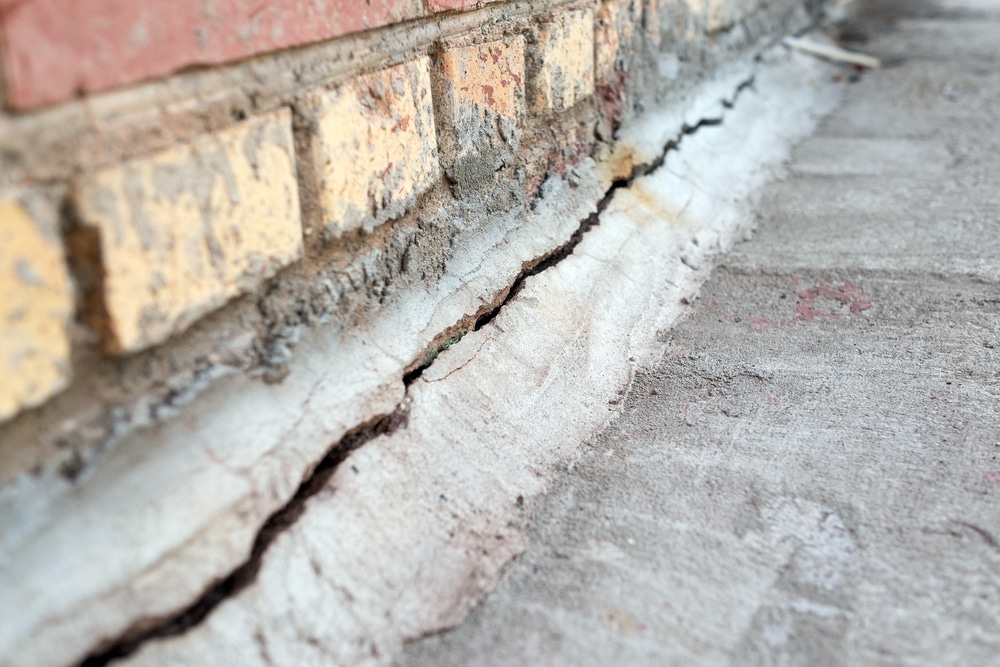
Reviewing the Home’s Repair History
One of the easiest ways to check if a house has had foundation repairs is to ask the seller for the repair history. In many states, like Louisiana, sellers must reveal any known foundation problems and repairs they have made. However, this disclosure may not always provide the full picture, so it’s crucial to ask detailed questions about the scope of the work performed.
- Ask for Documentation: Request repair documents, including contracts, invoices, and any warranties. This will give you insight into the type of work performed and whether it was handled by a reputable foundation repair company, such as Abry Brothers.
- Check for Warranties: If the foundation repair has a transferable warranty, it is a good sign. This means the work was done well. It also suggests that future repairs might be covered by the warranty.
Visible Clues of Past Foundation Repairs
If the seller or real estate agent cannot give detailed repair documents, you can still look for signs. These signs may show that foundation repair work has been done:
- Patchwork or New Concrete: Foundation cracks that have been repaired with fresh concrete, epoxy injections, or other patching methods may be a sign that previous work was done. This isn’t necessarily a red flag, but it’s essential to verify the quality of the repair.
- New Drywall or Flooring: In some cases, foundation movement can damage interior walls and floors. If you notice newly installed drywall or flooring in certain areas of the house, it could be a sign that the foundation caused damage and was repaired. Look for subtle differences in texture or color between older and newer materials.
- Piering or Underpinning Systems: Some foundation repairs involve the installation of piers or other structural supports beneath the foundation. In some cases, you may be able to see signs of these systems around the exterior of the home, such as metal brackets or changes in the ground near the foundation.
The Role of Professional Inspections
Hiring a professional foundation inspector is a critical step when evaluating any home, especially one with previous foundation repairs. A trained foundation repair specialist can assess the quality of the repair work. They can also spot any potential issues that may not be easy to see.
- Foundation Company Inspection: A foundation company like Abry Brothers, which specializes in Louisiana’s soil and climate conditions, can provide an in-depth inspection to ensure that any previous repairs were effective and that no further work is needed.
- General Home Inspection: In addition to a foundation-specific inspection, a general home inspection will provide you with a broader look at the property’s condition, including the roof, plumbing, and electrical systems.
By thoroughly reviewing the repair history and having a professional inspection done, you can gain confidence in the foundation’s condition before moving forward with the purchase. In the next section, we’ll explore whether it’s advisable to buy a home with foundation problems and what factors should influence your decision.
Should You Buy a House with Foundation Problems?
Deciding whether to purchase a home with foundation problems is a common dilemma for prospective buyers in Louisiana. While foundation issues can be alarming, they don’t always mean the home is a bad investment. That said, careful evaluation of the severity of the damage and the potential repair costs is essential. We’ll explore the factors you should consider before deciding to buy a house with foundation problems.
Assessing the Severity of Foundation Problems
The first step in deciding whether to buy a home with foundation issues is to assess the extent of the damage. Some foundation problems are small and can be fixed easily. Others may need more work and can be costly. Here’s what to consider:
- Minor Cracks vs. Major Shifting: Small cracks in walls or floors are often a normal part of settling and may not pose serious concerns. However, large horizontal cracks, significant foundation shifts, or bowing walls may indicate deeper structural problems that could require costly repairs.
- Localized Damage: Sometimes, foundation problems affect only one part of the home. This could be a small section of the foundation or just one corner of the building. These localized issues are often easier and cheaper to fix compared to widespread damage affecting the entire foundation.
- Ongoing Movement: A key factor to consider is whether the foundation damage is actively worsening. A home inspector or foundation expert can check if the foundation is stable or still shifting. If it is shifting, this could cause problems later on.
Repair Costs and Considerations
Foundation repairs can range from relatively inexpensive fixes to significant structural overhauls. Before committing to a purchase, it’s important to understand the scope of repairs and the associated costs. In Louisiana, the cost of foundation repair can change. It depends on how much damage there is and the methods used to fix it, such as:
- Crack Repairs: Small foundation cracks can be fixed with epoxy injections or patching. This usually costs a few hundred to a few thousand dollars. The price depends on the size of the crack and where it is located.
- Piering and Underpinning: For more severe issues, such as foundation sinking or shifting, methods like piering or underpinning may be required. These solutions include adding piers or supports under the foundation to make it stable. The costs range from $5,000 to $15,000 or more.
- Waterproofing: In parts of Louisiana that get heavy rain and flooding, waterproofing the foundation may be needed. This helps stop more water damage. The cost of waterproofing varies depending on the size of the home and the extent of the moisture problems.
Before moving forward, it’s wise to get an estimate from a foundation repair company like Abry Brothers. This will help you understand the costs and include them in your budget.
Negotiation Leverage
If you are thinking about buying a home with foundation issues, you may have a chance to negotiate a better price. Foundation issues often deter other buyers, which can give you more bargaining power. Some ways you can use foundation problems to your advantage during negotiations include:
- Lowering the Purchase Price: Requesting a reduction in the home’s price to account for the cost of foundation repairs is a common tactic. You can present estimates from a foundation repair company to support your request.
- Requesting Repair Credits: Instead of lowering the price, you can ask the seller for credits at closing. These credits can help pay for foundation repair. This way, you’ll have the funds set aside to address the issue after the sale.
Negotiating for a better deal can make buying a home with foundation issues more attractive. However, it’s important to consider the possible long-term risks too.
When deciding to buy a home with foundation problems, it’s important to check the foundation’s current condition. You should also consider the possible costs of repairs.
Share this blog:





